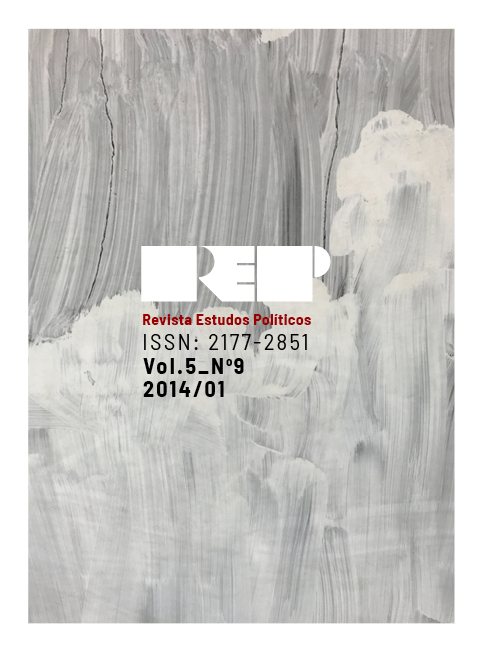Review of “Liberalism: The Life of an Idea”
DOI:
https://doi.org/10.22409/rep.v5i9.40364Palavras-chave:
Edmund FawcettResumo
Fawcett, Edmund. Liberalism: the life of an idea. Priceton Universiy Press: 2014, 488p Any study of the liberal tradition must set out by addressing the perennial problem of polysemy. On the one hand, common sense states that what characterizes a liberal is a defence of the free market, low taxes and restricted government. On the other, it entails a belief in tolerance and social concerns together with a scepticism of the authority in power. Some of these principles overlap, while others are unable to coexist at the same time. In “Liberalism: The Life of an Idea”, Edmund Fawcett seeks to make the history of the liberal tradition intelligible by examining some of its intellectual exponents. In fact, one of the reasons why this work has attracted so much interest is the narrative/ analytical approach adopted by Fawcett in focusing not only on the key figures in the liberal tradition but also on names that are not quoted so often (although they are just as interesting as, or even more interesting than, those who are well-known).Fawcett characterizes liberalism as a “modern practice of politics with no foundation myth” (xii). As a political practice, its origins date from the post-1815 era, although it can be argued that its intellectual roots may well stretch back much earlier than this. Even though the liberal narrative often invokes an idea of universality and timelessness, Fawcett recalls that it involves a practice (and a discourse) embedded in a “Euro-Atlantic” world, with its own peculiar historical essenceDownloads
Downloads
Publicado
Edição
Seção
Licença
Para submeter um manuscrito, os autores devem realizar o cadastro na plataforma, fornecer os dados solicitados e seguir as orientações recomendadas. Para tanto, será necessário apresentar o número da identidade de pesquisador. Para obtê-lo, é necessário realizar o cadastro na plataforma Open Researcher and Contributor ID (ORCID).
Ao submeter um manuscrito, os autores declaram sua propriedade intelectual sobre o texto e se comprometem com todas as práticas legais relativas à autoria. A submissão implica, ainda, na autorização plena, irrevogável e gratuita de sua publicação na REP, a qual se responsabiliza pela menção da autoria.
A REP tem acesso aberto e não cobra pelo acesso aos artigos.
Orientando-se pelo princípio de que tornar público e disponibilizar gratuitamente o conhecimento científico contribui para a democratização mundial do conhecimento, a REP adota a política de acesso livre e imediato ao seu conteúdo.
No mesmo sentido, a REP utiliza a licença CC-BY, Creative Commons, a qual autoriza que terceiros distribuam, remixem, adaptem e criem a partir do trabalho, inclusive para fins comerciais, desde que se reconheça e torne público o crédito da criação original.
Para mais informações, contatar a editora através do e-mail revistaestudospoliticos@gmail.com


